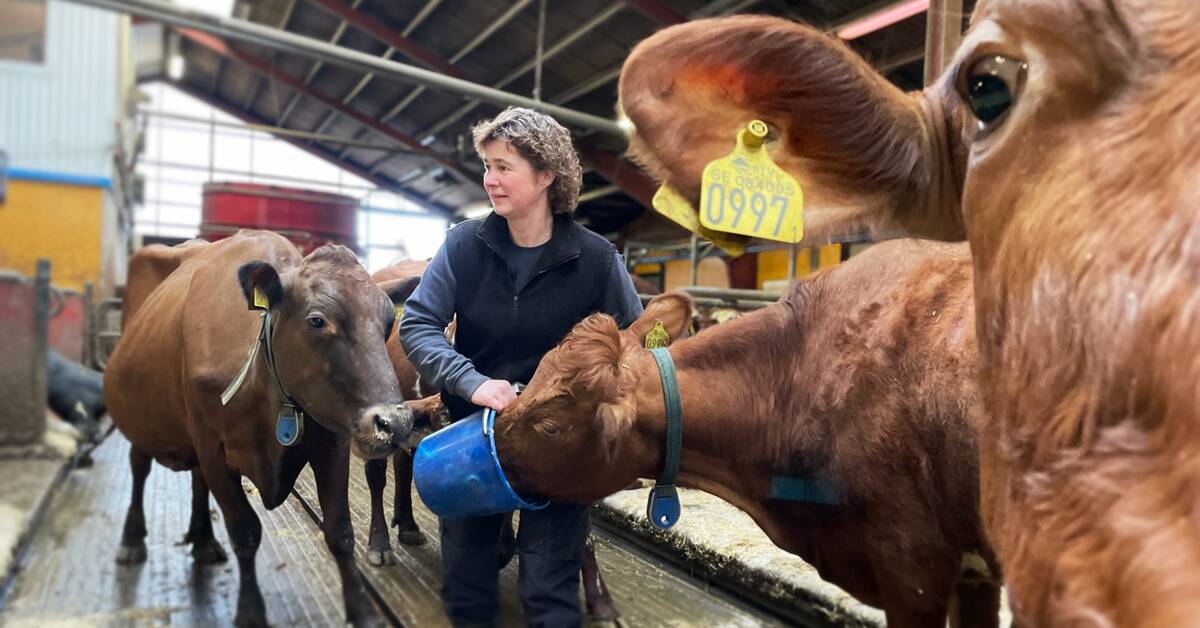Despite the fact that this autumn's high milk price gave more cash for organic farmer Cecilia "Cilla" Engström in Färanäs, Alvesta municipality, the profits are eaten up. Normally, the farm can grow its own grain, but this year's harvest was ruined by the drought – just like in the summer of 2018.
Now she needs to borrow just over half a million to be able to buy the organic and requirement-certified feed that the animals need, so that the farm with its 80 dairy cows can produce organic milk for Arla. The ecofode has become 30 to 35 percent more expensive since 2018, according to Cilla.
"This drought is exceptional, but it is not sustainable to borrow for operations, year after year after year," says Cilla Engström.
"Food must be allowed to cost money"
At the same time as the overheads of organic farms are increasing, prices in the trade are also being squeezed. There is a difference of just over a dime in stores between a liter of organic milk and a liter of conventional milk. But the compensation per litre for organic farmers does not increase in relation to the increased expenditure.
"Buying good quality food must cost money. Otherwise, it is someone else who will pay the price. We must also be allowed to earn at some point, there must be profitability in Swedish food production. Otherwise, there will soon be no food in Sweden, says Cilla Engström.
Javascript is turned off
Javascript must be turned on to play video
Learn more about browser support
Follow eco-farmer Cilla Engström to the dairy cows in the clip, and hear her tell why the farm has to take half a million kronor in loans to be able to afford feed. Photo: SVT / Kajsa Oscarson

